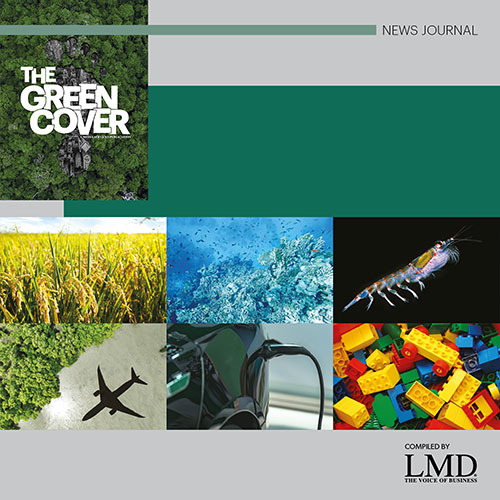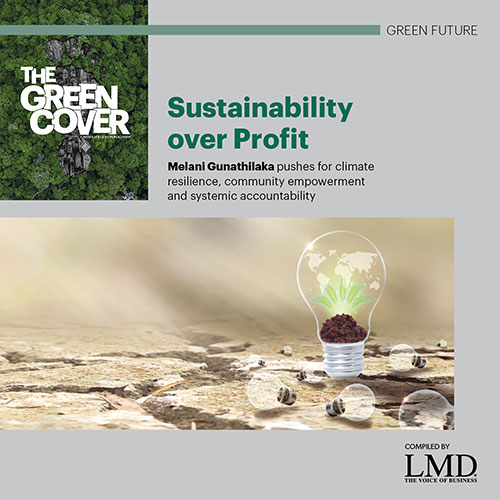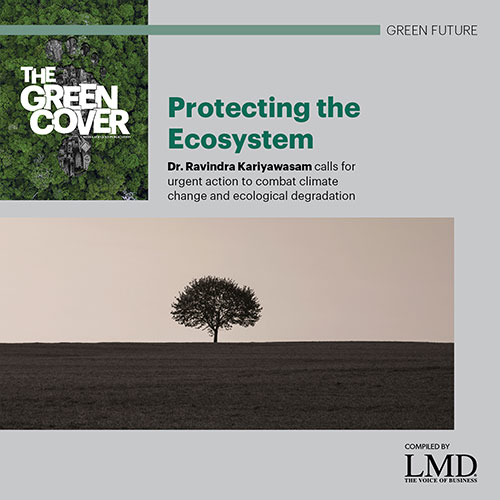ACCA SRI LANKA

Q: Sustainability is top of the agenda for business, the public sector and policy makers everywhere… What trends are you seeing globally, which may impact emerging economies like Sri Lanka?
A: A recent study by the World Economic Forum (WEF) and PricewaterhouseCoopers (PwC) shows more than half the world’s GDP comes from nature. In simple terms, we make money from nature.
In another study by the World Wide Fund for Nature (WWF) in 2022, WWF found that on average, animal species populations have declined by 69 percent since 1970. This is important as the health of nature – our bread basket – depends on the health of such species.
Businesses need to take note of this seriously, and appreciate how their operations contribute to environmental loss, degradation and exploitation.
At the recent 2023 UN Climate Change Conference of the Parties (COP28) summit, a stock-take of the world’s progress towards keeping global warming below 1.5 degrees above preindustrial levels by 2050 was undertaken for the first time.
It found that to achieve this goal, CO2 emissions need to be cut by 43 percent by 2030, and we are not tracking very well towards this reduction.
As regards climate action, there are two distinct approaches: mitigation, where action is taken to reduce emissions and be less carbon intensive; and adaptation.
In terms of financing climate action, the amount raised for climate mitigation was reported at about US$ 1.3 trillion in 2021/22. While this seems sizeable, it is not enough – with estimates suggesting it needs to be close to 10 trillion dollars a year.
Of the US$ 1.3 trillion, only about five percent was for adaptation, according to Climate Policy Initiative (CPI)’s Global Landscape of Climate Finance 2023 report.
This involves making changes to our lifestyles, supply chains, poorer quality materials, and relocating people and operations.
Countries such as Sri Lanka and other developing economies will disproportionately bear the brunt of such effects although they are not the chief contributors to CO2 emissions. Clearly, more funding needs to be made available for adaptation.
Social inequality can have tremendous impacts on political and economic stability. A recent World Inequality Report found that the top 10 percent of wage earners earn 52 percent of global pay while the bottom 50 percent of workers account for only 8.5 percent.

Senior Policy Consultant ACCA Asia Pacific
Q: What roles do accountants have in informing, driving and embedding sustainable approaches?
A: Professional accountants should be at the heart of their organisations’ sustainability ambitions and actions. Accountants have been unwitting servants to the profit maximisation mantra for too long, and this imbalance has contributed to many problems we face today.
We must play a more active role in decarbonising business operations and reducing its negative impact on nature.
Equally, we have to focus on the interplay of businesses with human rights – be they our employees, customers or communities, according to ACCA Global’s ‘Accounting for Society’s Values.’
Developments in sustainability reporting around the world including Sri Lanka will be a key area of focus for accountants going forward. There are currently two global IFRS sustainability disclosure standards – with more in the pipeline.
Accountants should prepare and help their organisations get ready ahead of these standards coming into force by building the right processes, data and controls that will enable reporting integrity.
Q: Could you outline how ACCA is supporting not only its members but the profession as a whole – i.e. being ‘brand agnostic’ – in stepping up to these opportunities and challenges?
A: Thought leadership is the key. This is how we keep not only our members but the profession as a whole aware of contemporary and emerging business and finance issues. We engage extensively through conferences, seminars and events to share our thought leadership insights, and help shape the profession’s responses to such issues.
Working extensively with national accounting bodies around the world in supporting their efforts to develop the profession according to market dynamics is yet another critical facet of our work.
Our professional qualification is at the core of what we do. We continuously review and refresh our syllabus to produce accountants that the world needs.
We also develop continuing professional development courses to help accountants stay relevant – these cover a range of topics from sustainability to artificial intelligence.
Later this year, we will be introducing a new Diploma in Sustainability to help professional accountants stay relevant in this fast changing space.

Telephone 2424802 | Email: sharath.martin@accaglobal.com | Website: www.accaglobal.com





